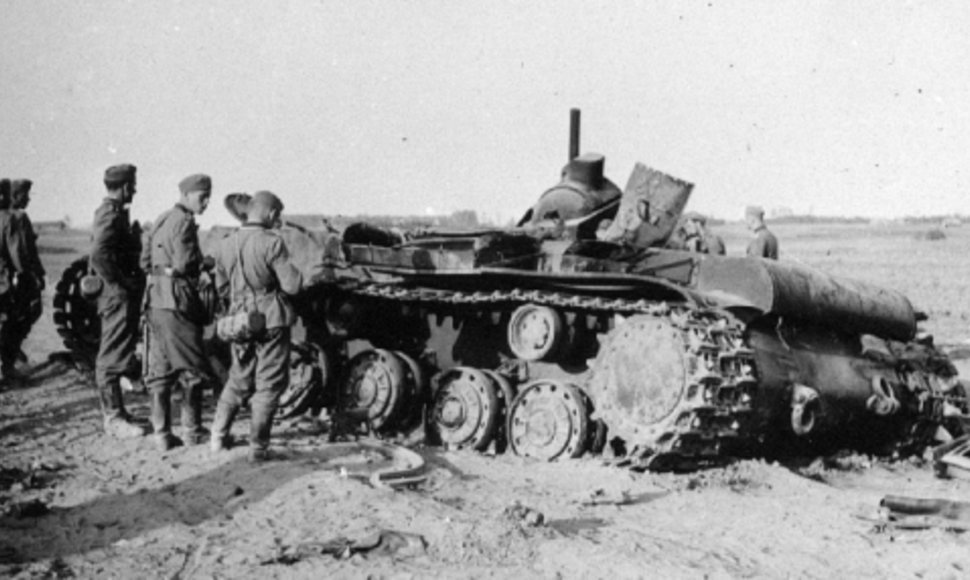The commission will now include dozens of historians from Lithuania and abroad who will investigate and seek a joint assessment of the crimes committed in Lithuania during the years of occupation. Signed on Tuesday, the decree amends the legal act handed down in August.
According to the new decree, the commission is divided into two open and independent subcommissions "to divide between crimes committed by the Nazi occupation regime and the Soviet occupation regime." The earlier decree also split the commission into two units but did not feature the phrase, thus triggering protests from representatives of the Israel-based Yad Vashem Museum.
The international panel was first set up by then president Valdas Adamkus in 1998. However, the commission has not met since Lithuania's prosecutors in 2007 brought suspicions against commission member Yitzhak Arad of complicity in the massacres of Lithuanians during World War II.
Arad, a member of the war-time Soviet guerrilla force, categorically denied his complicity, and the investigation was closed in 2008 due to lack of evidence.
Both the previous and the current presidential decree acknowledges unique features of the Holocaust, saying the commission had been set up in the light of "unparalleled character and scope of Holocaust, other crimes of the Nazi occupation regime and sore consequences of the Soviet occupation regime upon the residents of Lithuania."
The US Embassy in Lithuania applauded resumption of the commission's operations, saying this would contribute to better understanding of history.
"The United States Embassy welcomes the decree signed by President Grybauskaitė to re-establish the International Commission for the Evaluation of Crimes of the Nazi and Soviet Occupation Regimes. This is an important step forward on the path toward further understanding this complex and tragic history of Lithuania," the embassy's spokesman Jonathan M. Berger told BNS.
Lithuania and some other Eastern European countries have come under criticism from the international community for allegedly attempting to equate Nazi crimes to Soviet crimes and understate the Holocaust. Lithuania's administration has rejected the accusations, emphasizing that the Western world knew little about the crimes committed by the Communist regimes and saying that Russia had been avoiding to honestly evaluate Soviet atrocities and occupation of the Baltic states.
Emanuelis Zingeris, chairman of the parliamentary Foreign Affairs Committee who has been appointed to head the commission, has said the commission should meet before the end of this year.
Two representatives of the Israel-based Yad Vashem organization Dina Porat and Arkadiy Zeltser, Andrew Baker of the American Jewish Committee, Saulius Sužiedėlis of Millersville University and Kęstutis Grinius of Vilnius University will work in the fist subcommission.
Meanwhile, Soviet crimes will be studied by Alexander Daniel of international public organization Memorial in Russia, Nicolas Lane of the American Jewish Committee, Timothy Snyder from Yale University, Françoise Thomas from Sorbonne University, Hungarian historian Janos M. Rainer, Arvydas Anušauskas, chairman of the Seimas Committee on National Security and Defense.
With the new decree, the president includes a new member into the international commission, namely Jurgen Matthaus of the US Holocaust Memorial Museum.
After the Soviet Union invaded Lithuania in 1940, thousands of local residents were killed and more than 17,000 were deported in June 1941.
After the start of the German-Soviet war, Lithuania was taken over by Nazi Germany. Often assisted by local collaborators, the Nazis massacred nearly 90 percent of Lithuania's Jewish population of 208,000.
Under Soviet occupation, Lithuania lost nearly 800,000 residents between 1940 and 1952, including 444,000 who repatriated or left Lithuania, 25,000 who were killed in the front, 275,000 who were taken to forced labor camps or deported. Another 20,000 participants of resistance efforts and their supporters were killed.
Last year, the Lithuanian parliament passed a law on compensation for nationalized property of Jewish religious communities, which envisages paying 128 million litas (EUR 37.1m) over the coming decade.
Last month, the government approved a commission for coordination of proposals in connection to implementation of the law on compensation of damages caused by the Soviet occupation. Russia, legal successor of the Soviet Union, has so far refused to hold compensation talks with Lithuania.












